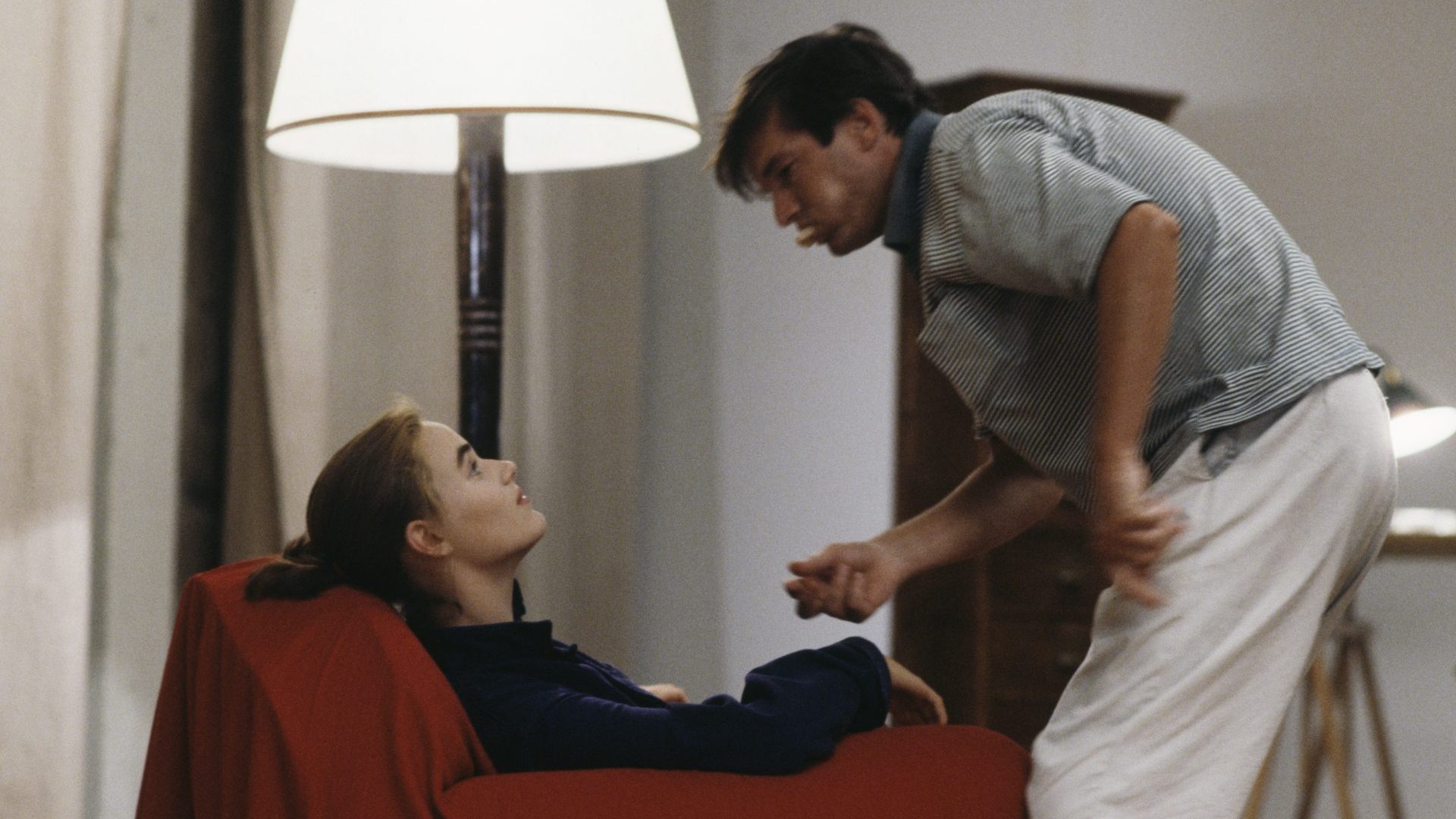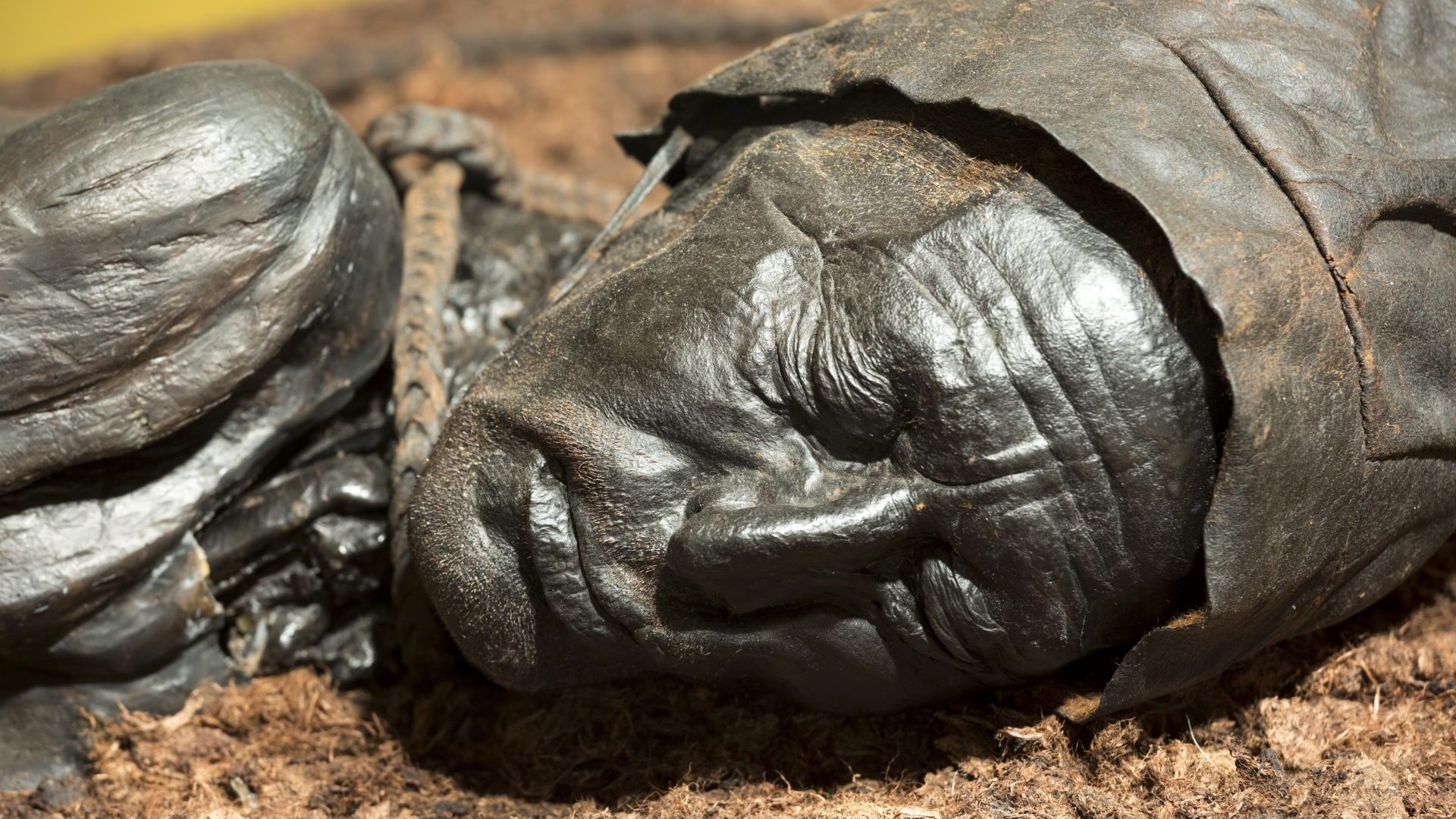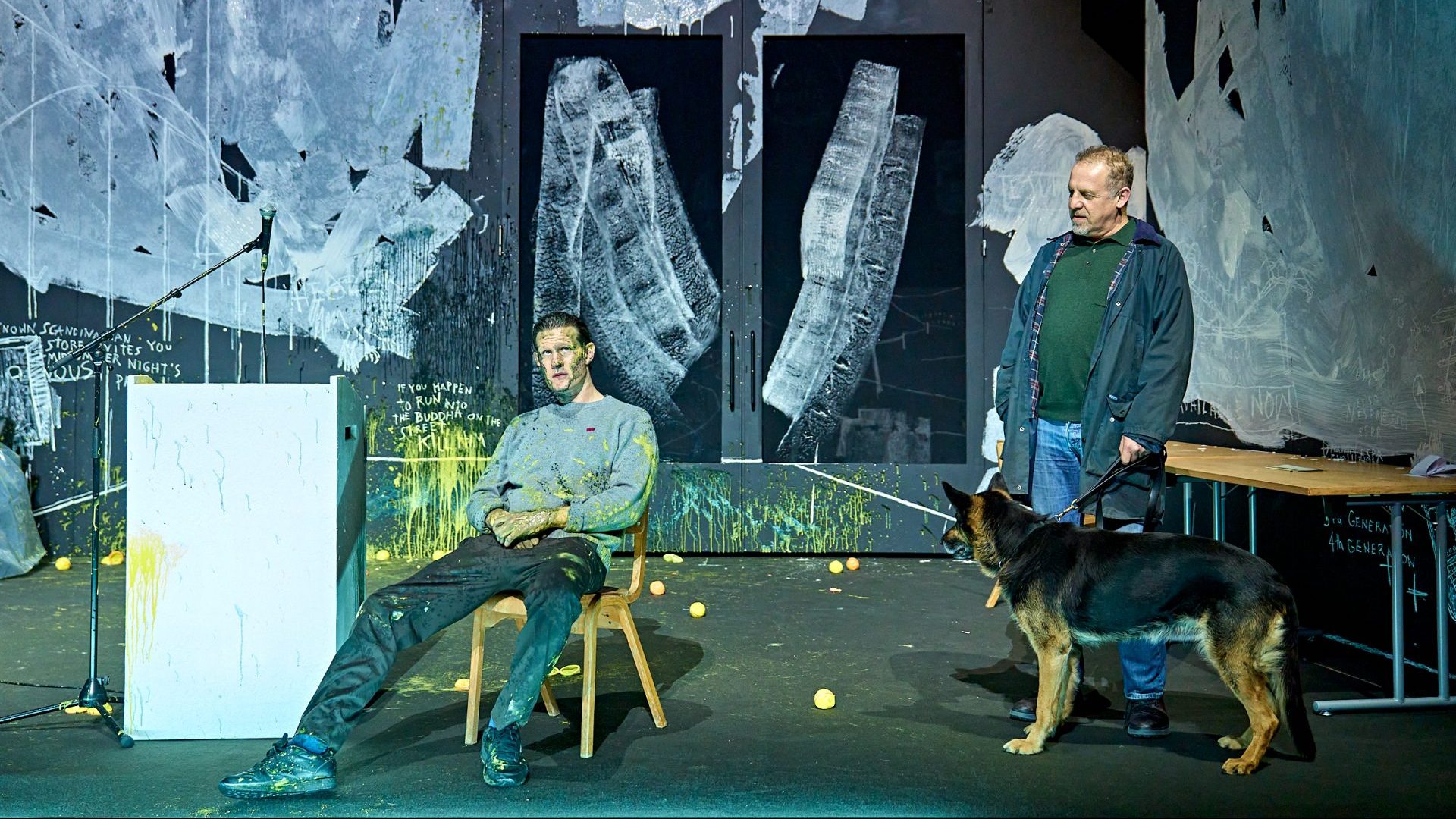An artistic male aristocracy of proudly “transgressive” French cinema and intelligentsia luminaries is being toppled amid a torrent of sexual assault accusations – including rape of underage girls, sadistic violence and harassment.
Gallic movie behemoth Gérard Depardieu, acclaimed auteur film directors Jacques Doillon, Benoît Jacquot, Philippe Garrel and Alain Corneau, “Caviar Left” celebrity psychoanalyst Gérard Miller, novelist Gabriel Matzneff, and more: the list of long-venerated cultural figures facing accusations of abuse, nearly all men of a “certain age” (ie in their seventies) keeps growing.
And as more sordid revelations emerge, the elite, Paris-centric cultural ecosystem that empowered and celebrated these idols for so many decades, often with the willing help of powerful and famous women, is being exposed.
It is not just that everyone in the know knew. The accused offenders were mostly on the record in their films parading their preferences for minors or boasting in media appearances about their illegal “predilections”. The difference today is that more members of the French cultural upper echelons and the public seem to care. So, what happened in between?
Most significantly, a burgeoning group of female victims are speaking out, inspired by the courage and determination of Judith Godrèche. The 51-year-old actress told police last month that she was in the “grip” of the “predation” of arthouse director Jacquot, now 77, when she alleges that he groomed, raped her and subjected her to extreme cruelty while she lived with him for six years, starting when she was 14 and he was 39. The details of these allegations, which span the years 1986 to 1992, when she also starred in several of Jacquot’s most praised films, Les mendiants (The Beggars) and La désenchantée (The Disenchanted) are horrifying.
“It is the story of a kidnapped child… sexual abuse, sexual sadism happened immediately,” Godrèche said. Jacquot treated her as his “child-woman”. “I did not want his body…consent does not exist for a 14-year-old child…and I never gave it”. Godrèche who explained that at the beginning she was “so docile, completely indoctrinated… as if I had joined a cult,” alleges that she was punched on the nose, falling to the ground on a trip to New York for making too much noise with her straw. She was kicked, tied up and whipped with a belt in sado-masochistic “games”, and subject to forced sexual acts including coerced fellatio, while Jacquot controlled what she ate, the length of her hair and her movements.
The actress has also filed a complaint against Jacquot’s friend and rival director, 79-year-old Jacques Doillon, accusing him of raping her when she was 15 and he was 29 years older. The assaults occurred both off and on camera, during the filming of his cringeworthy paedophile fantasy film unironically titled The 15 Year Old Girl.
During the filming, Doillon decided at the last minute to fire the main actor. He gave himself the role of the lecherous father of her character’s boyfriend – allegedly assaulting Godrèche scores of times while his then wife, the late singer and actress Jane Birkin, was watching as she worked as an assistant on the film production. “All of a sudden, he decides that there is a sex scene between him and me, and we do 45 takes,” Godrèche explained.
French prosecutors have launched investigations into Jacquot and Doillon for rape of a minor by a person in a position of authority.
In various artistic forays including films, books and public statements ever since she left Jacquot in 1992, Godrèche fictionalised the story of her abuse but had only alluded to the identity of her abuser. Then last year she wrote, directed and starred in Icon of French Cinema, her introspective semi-autobiographical TV series that shows flashbacks to her grooming and assaults as a minor.
The show premiered to critical and popular acclaim on French and German TV in late December, just as another controversy swirled around Depardieu. Already under police investigation following multiple accusations of sexual violence, he was subject to new allegations and seen making lewd remarks about very young girls in a video shown on French TV.
Following widespread outrage, including from some in the film industry, a letter of support for the 75-year-old actor then appeared in Le Figaro, signed by scores of actors, directors and cultural figures including Depardieu’s ex, actress Carole Bouquet, Charlotte Rampling, director Bertrand Blier and singer Carla Bruni.
Still, despite being asked again, Godrèche again declined to name Jacquot. However, last month, a 2011 video resurfaced showing Jacquot gloating at his “artistic licence” for “illicit trafficking in minors” and how cinema had been a “cover” for his illegal behaviour. He also recounted the jealousy and admiration of his peers when he discussed his directorial “pact” consisting of bedding his young actresses in return for making them famous in his films.
Jacquot, who early in his career made a film about the father of modern psychoanalysis, Jacques Lacan, had been interviewed by the psychoanalyst to the stars Gerard Miller for his Forbidden documentary series. Miller, 75, is the preferred shrink of Paris’ left wing elite, close to Jean-Luc Mélenchon, leader of the far left party La France Insoumise, and a backer of ecologist leader Sandrine Rousseau.
After seeing the old video, Godrèche vomited, spent the day in bed, then went to the police, filing complaints for rape of a minor under 15 against Jacquot, and his peer director Doillon. Soon, more than 50 women spoke out against Miller, too. He is also under police investigation for sexual assault based on multiple testimonies from his female patients that he abused and raped some of them, including at least three when they were minors – all while under hypnosis.
Since Godrèche began to reclaim her narrative, actresses including Isild Le Besco, Julia Roy, Anna Mouglalis and Laurence Cordier have gone public with creepily similar allegations about the same directors – and other film-makers who took inspiration from their predation.
Le Besco has announced she will likely pursue a police complaint. A 1994 interview came to light featuring Jacquot again confessing his preference for teenage actresses and how he spotted a young Virginie Ledoyen in an Olivier Assayas film: “It’s amusing these exchanges of fresh flesh between friendly film-makers”.
Video clips of interviews with young Godrèche have also been shared to widespread revulsion. In 1992, just before she succeeded in leaving Jacquot, she appeared on a popular talk show hosted by Thierry Ardisson, known for his brazenly sexist treatment of female celebrities. Ardisson continually referred to her relationship with the older director, to her obvious discomfort. Some of the questions thrown at her included: “Have you ever been sexually harassed by a producer or director? (Answer, yes perhaps). You like mature men, don’t you? You’re a perverse ingenue…would you agree to act in a pornographic film if it was made by a really great director?” (Godrèche said no repeatedly).
Emboldened by the truth-telling of her fellow actresses, Sarah Grappin told L’Obs magazine she was raped and assaulted by the late movie director Alain Corneau in 1994, while he was the husband of screen legend Nadine Trintignant. Corneau even justified his relationship with her by saying: “You are not the only one to experience this, it happened to Judith Godrèche.” Grappin was 16, Corneau 52.
Another actress, Vahina Giocante, told Le Monde that Jacquot insisted she shoot a sex scene (she was 17) without underwear on, while others explained they lost roles in Jacquot and Doillon films for refusing to sleep with the directors. Marie Vialle, who was Garrel’s acting student between 1994 and 1997, said her teacher allegedly offered to “write a film for her” and then, during a work meeting, tried to kiss her. Garrel allegedly told her: “I can’t make the film if I don’t sleep with you.” Interviewed by Mediapart, the film-
maker claimed to have “fallen in love” with Vialle and invited her to lunch, with this argument: “Like many directors, I liked shooting with the woman I was in love with and filming her.”
The consequences of the new era of “the revolt of the little girls”, as film critic Hélène Frappat calls it, are already dramatic.
The gruelling testimonies of predatory behaviour, sexual abuse, coercion, casting-couch harassment and violence are prompting multiple police inquiries, and in some cases charges, against members of this revered class of masculine cultural icons.
The releases of Jacquot and Doillon’s latest films (Doillon is sueing Godrèche for defamation) are now in doubt. Media outlets including Les Cahiers du Cinéma – the film criticism bible founded by New Wave arthouse film idols Francois Truffaut and Jean-Luc Godard – and Telerama are publishing mea culpas for having participated in the elevation of the industry’s most voracious abusers of minors. The cultural commentariat is re-evaluating the quality of the accused’s oeuvres – and the result is wanting, with Le Figaro declaring that going back through the filmography of Doillon, Jacquot and Garrell is “punishing”.
“The three directors haven’t learned a thing since the 1970s. Basically, they’re just clumsy, heavy-handed pervy stories of people playing doctors and nurses, told at an age when we should be focusing on other issues. These eternal students with their falsely tortured airs are lucky. At least they’ve stayed young. They’ve kept their adolescent brains. We’re not talking about any other part of their anatomy.”
Meanwhile a new survey shows 50% of French people polled believe a film-maker or actor should step aside if accused, even before any legal ruling. In a sign of the widespread disgust at the left wing culturati’s apparent lack of concern over widespread accusations of horrendous abuse, the poll showed 30% of French trust far right Marine Le Pen more than Mélenchon (17%) or Rousseau (12%) to look out for the interests of and protection of women.
Some are calling it a resurgence of the French women’s movement that started out in 2017 with the hashtag #Balancetonporc or Denounce your Pig. The rumblings have been growing louder for several years. In 2019, whistleblower actress Adèle Haenel accused the director Christophe Ruggia of sexual abuse. He is now on trial, charged with sexually assaulting her as a minor from age 12. Haenel, who has since abandoned cinema in protest, walked out of the Césars (the French Oscars) that year when it gave another swag of director’s awards to Roman Polanski who, at 90, lives between France and Switzerland and is still the subject of an arrest warrant for his conviction of statutory rape of a 13-year-old in California in 1976.
Godrèche was invited to speak about her experience of sexual abuse and harassment at this year’s Césars, where she said it was time for the French film industry to usher in an new era: “Cinema is made up of our desire for truth. Films watch us as much as we watch them. It’s also made out of our need for humanity. No? So, why? Why allow this art that we love so much, this art that brings us together, to be used as a cover for the illicit trafficking of young girls?”.
“Because you must know that this loneliness, it’s mine but it’s also that of thousands in our society. It’s in your hands. We are in the spotlight. At the dawn of a new day. We can decide that men accused of rape should not be allowed to call the shots in cinema.”
“That, as they say, sets the tone. We can’t ignore the truth because it’s not our child, our son, our daughter. We can’t be at such a level of impunity, denial and privilege that morality goes right over our heads.” Next week she will testify before the French Senate in their inquiry into sexual violence.
The shift in the zeitgeist is palpable. But is it akin to the cultural regime change in Hollywood after women exposed Harvey Weinstein with the first wave of #MeToo, a movement that appears to be finally underway in France? Some leading women of the same generation as men like Jacquot and Doillon have come to their defence, as they did with Depardieu. The 76-year-
old actress Anny Duperey described as “extremely exaggerated” the statements of Godrèche about the “grip” and violence she says she suffered from the two directors. “Six years with a director, under control I want to (believe it), but (she was) still consenting, right?” Duperey said on French radio.
One big difference with the English-speaking waves of #MeToo is that the French cultural industries and the public seem to make a firm distinction between the alleged network of child abusers using their “art” or “intello” status as an excuse to have forced sexual relationships with minor women, and the collapsing of boundaries between so-called “sexual misconduct” and sexual assault, rape and clear cases of employment-based harassment.
“There is talk of a nouvelle vague – new wave – of #MeToo”, said Caroline Fourest, the feminist film-maker and editorial director of Franc-Tireur newspaper. “However, the accusations made by Godrèche against Jacquot and Doillon tell us about a very old world. A cinema of “incestuous fathers”, where a camera is used, the blurring of ages and souls, to get away with anything, in the name of art and “transgression”.”
Fourest cautions that it is important that predation parading as seduction is being exposed for what it is – without denying that sometimes genuine seduction and romance can occur on set and without abuse. Speaking of the fury many French feel at the revelations that some of their cultural icons were violent sexual predators, she explained: “There is this brutality because we are emerging from centuries of silence, of abuse, and when we open the lid it cannot happen any other way. This rage is legitimate. We must hear the words of the victims, especially when they are so intelligent about the diagnosis that Judith Godrèche poses, not only about what she experienced but about the films that were born from that.”
French-speaking American actress Jodie Foster agrees. “It’s good that people are waking up,” she said, pointing to a certain “backwardness of the French” on the subject.
For Frappat it is liberating for young women and all women “survivors” that the Gallic model of the transgressor/creator and his “muse” is finally being held up to the light.
“The bad films of Benoît Jacquot or Jacques Doillon were sanctified by good French taste, that is, by the aesthetic evaluation system of our enlightened bourgeoisie. His vision of the world is based on a romantic scam. A scam for women, not for “great creators”, who claim it by explaining that in the France of the New Wave, a film-maker “must” sleep with his muse to find his inspiration.”
Emma-Kate Symons is a Paris-based journalist and columnist who has been published in the Washington Post, Wall Street Journal and Reuters



